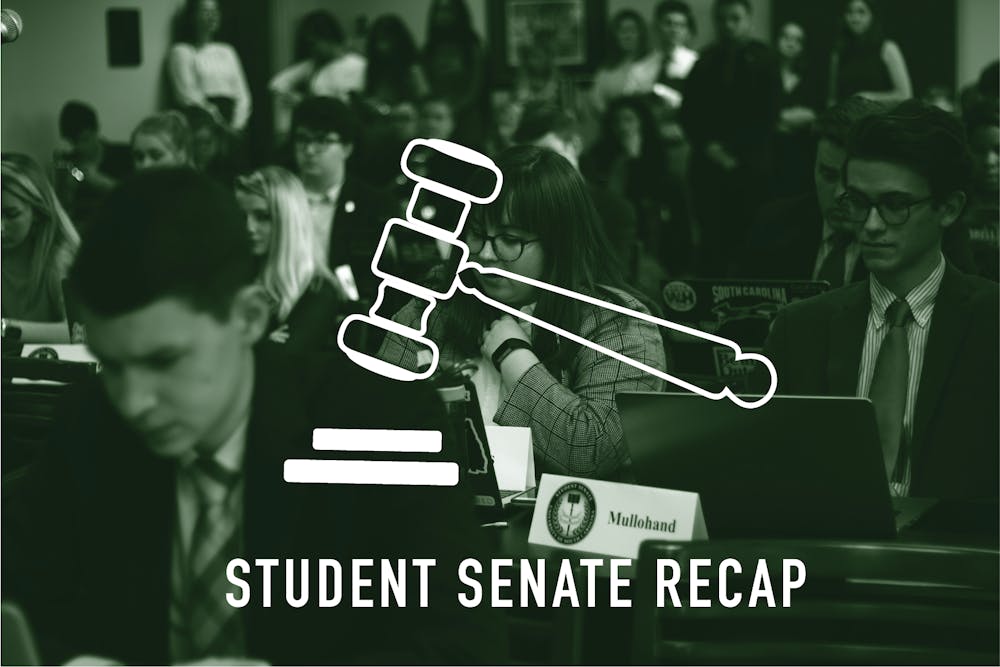The student senate voted Wednesday to include a referendum to allow the student body to vote on removing the position of treasurer in the upcoming student government election.
The referendum, introduced last week, will replace the position of treasurer, which is elected by the students, with a secretary of finance chosen by the student body president.
Treasurer Caden Askew said removing his own office will increase the efficiency with which student organizations are able to receive funds.
“What we intend to do with this referendum is make more transparent the resources … trying to create a document, a better document, to give them that resource and putting the onus back on student organizations, allowing them to take initiative in their own funding process,” Askew, second-year finance and economics student, said.
Currently, student organizations must meet with Askew to secure funding, and out of the roughly 70% that choose to do so, a majority don’t utilize the resources the treasurer’s office has, Askew said.
Having one person in control of student organizations’ finances can also lead to fallibility, Askew said.
“The level of service we've been able to provide student organizations this year, there's no mandate to upkeep it, and so that was another problem with the office,” Askew said. “I've gone well above and beyond the call of my constitutional duties.”
Sawyer McDuffie, the speaker pro tempore, strongly opposed the referendum on the grounds of historical precedent.
“Almost exactly one year ago ... the senate rejected the exact same referendum,” McDuffie, a third-year political science student, said.
Due to COVID-19 and “social unrest," McDuffie said losing the student-elected treasurer would be a mistake.
“In this time, when you have so much going on, why would one less voice be a good idea?” McDuffie said.
The referendum will be included in this year’s Student Government elections. Should it pass, the position of treasurer will be removed in Spring 2022, after working with the secretary of finance for a year to ensure a smooth transition.
The student senate also discussed discontinuing Zoom as a means of communication for USC functions.
First-year mass communications student Andrew Phillips proposed the resolution, citing privacy concerns regarding Zoom.
Specifically, Phillips mentioned a Zoom executive living in China who was arrested by the FBI in after recording information on people who discussed China’s Tiananmen Square Massacre, a censored subject in the country.
“Zoom has more than 500 employees that they moved from their research and development team overseas to China, raising numerous immense privacy concerns, given China's very, very rich past of surveillance,” Phillips said.
Last year’s racist hacking of the African American Association of Students’ annual cookout was discussed as a reason to switch as well.
Instead of Zoom, Phillips said the university could opt to use Microsoft Teams or Blackboard Collaborate, both of which are provided to students for free.
“Microsoft has actually made a point of emphasizing their privacy over Zoom,” Phillips said. “Zoom started as a very small startup company in which their focus was ease of use, which has actually ended up hurting them in terms of privacy.”
Additionally, the Senate discussed legislation recommending RMs to share information with their residents about Good Samaritan rules, which protect students from penalties when reporting alcohol or drug overdoses.
While RMs already receive this information in their training, the recommendation is that sharing information about “life-saving” Good Samaritan rules should become mandatory, Molley Jenkins, one of the bill’s co-sponsors, said.

